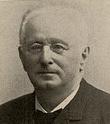Opium [Op]
Retention of urine from fright or after parturition, atony of the fundus of the bladder, difficulty in passing urine, which is high-colored and scanty, depositing a brick-red sediment, high acidity of urine (Morph).
Oxalic-acid [Ox-ac]
Great prostration, feels much worse mornings after a night’s rest, urine scanty with deposits of phosphates and oxalates, urea diminished.
Paeonia [Paeon]
Micturition somewhat impeded by constrictive sensation in region of neck of bladder so that urine is passed only in driblets, small ulcer in, perineum near anus, constantly oozing moisture of a very offensive odor.
Pareira-brava [Pareir]
Sensation as if bladder were distended, with pain going down thighs, and extending down into the feet, strangury with paroxysms of violent pains, urine can only be voided while patient is on his knees with head pressing against the floor, (<) mornings from 3 to 6 almost cartilaginous induration of mucous membrane of bladder, constant urging to urinate, violent pains in glans penis, urine has a strong ammoniacal smell, containing thick viscid mucus; pains in thighs while urinating (Berb, back); lithaemia.
Palladium [Pall]
Urine colors vessel red, red sand in urine (Lyc); frequent urging to urinate and aching in region of bladder cramp in abdomen, (<) when urinating, stitches through bladder and painful weakness in it, bladder feels full and still he passes only a little at a time, notwithstanding the urging.
Petroleum [Petr]
Involuntary discharge of reddish-brown and foetid urine, urine drops out after micturition, weakness of neck of bladder chronic Blennorrhoea, eczema or herpes preputialis with considerable itching, mucous discharge from urethra, burning pains, either in neck of bladder (Chronic prostatitis) or in urethra, chronic catarrh of bladder.
Petroselinum [Petros]
Sudden irresistible desire to urinate with or without gonorrhoea, and strangury so severe as to make him dance about the room.
Phellandrium [Phel]
Urging to urinate, with scanty emission and violent burning after micturition urine pale and watery, almost greenish.
Phosphorus [Phos]
Involuntary emission of urine, smarting and burning in urethra, with frequent desire to urinate, tension over the region of the bladder, acrid, offensive-smelling urine, brown urine, with red sandy sediment bloody urine urine with a sediment of white flocculi, full bladder, but causing no trouble or desire to urinate, unable to pass water or incontinence, both from paralysis of bladder.
Phosphoric-acid [Phos-ac]
Enuresis, with burning cutting pains in urethra and crampy pain in the kidneys, spasmodic constriction of the bladder, profuse discharge of watery urine, in which immediately forms a white cloud; milky urine with bloody jellylike lumps, burning in urethra while urinating.

